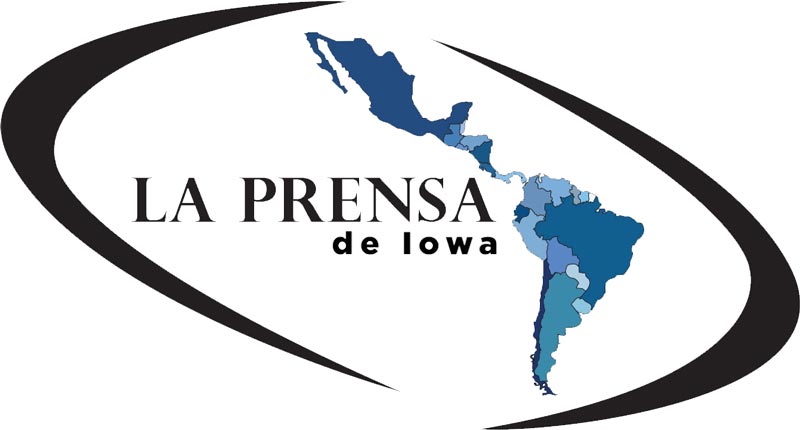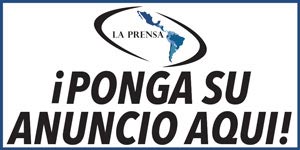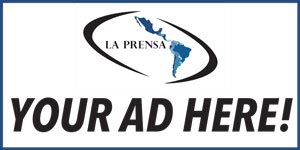Familiares de inmigrantes deberán pagar la ayuda pública
/⇣ English translation provided at the end ⇣
USCIS
Redacción
LA PRENSA
A partir de ahora, los residentes o ciudadanos que patrocinan a un migrante deben estar conscientes de que, si reciben ayuda pública, el gobierno les cobrará por cada dólar recibido.
El servicio de inmigración publicó la lista de requisitos que regula el patrocinio de inmigrantes y las responsabilidades que adquieren los patrocinadores, sobre todo si el extranjero recibe ayudas públicas.
Por medio de un memorando fechado el viernes (27 de septiembre), la Oficina de Ciudadanía y Servicios de Inmigración (USCIS) publicó el documento denominado “Responsabilidades Legales de los Patrocinadores de Extranjeros”.
La agencia señala que el instructivo se basa en el memorando presidencial del 23 de mayo, donde el presidente Donald Trump exige que cuando un extranjero reciba ciertas formas de beneficios públicos, se debe solicitar el reembolso por parte del patrocinador”.
“Los patrocinadores financieros que se comprometen a apoyar financieramente al extranjero patrocinado, en caso de que el extranjero solicite o reciba beneficios públicos, deberán cumplir con su compromiso de conformidad con la ley”, se lee en el documento.
La Ley de inmigración y Nacionalidad (INA) exige que el patrocinador de un extranjero firme una Declaración Jurada de Apoyo (Affidavit of Support), donde se compromete a otorgar respaldo financiero para el inmigrante patrocinado (solicitantes de una visa o la residencia legal permanente).
“Al enviar esta declaración jurada o un contrato entre el patrocinador y el familiar, usted acepta usar sus recursos para apoyar a los inmigrantes nombrados en los formularios y para reembolsar el costo de cualquier servicio público con recursos del gobierno mientras su obligación está vigente”, indica el memorando.
La USCIS dijo que algunas veces “los inmigrantes apadrinados solicitan y reciben beneficios públicos federales, estatales, locales o provenientes de agencias tribales” tales como Medicaid, Seguridad de Ingreso Suplementario, Asistencia Temporal para familias necesitadas y el Programa Estatal de Seguro de Salud Infantil.
La agencia dijo que los inmigrantes patrocinados “pueden no ser elegibles para ciertos beneficios públicos”, y en caso de recibirlos, lo tendrá en consideración durante el proceso de adjudicación del beneficio migratorio.
“Esto se llama estimación de ingresos”, precisó la USCIS.
Sin embargo, añade la agencia, si un inmigrante nombrado en una declaración jurada de manutención recibe un beneficio público con recursos del gobierno -mientras la declaración jurada sea parte de los requisitos para la obtención de un beneficio- “usted como patrocinador será responsable de reembolsar a la agencia que proporciona el beneficio”.
“Si no reembolsa a la agencia que otorgó la asistencia, la agencia puede obtener una orden judicial de reembolso”, advierte la nueva regla.
A mediados de junio el director interino de la USCIS, Ken Cuccinelli, había advertido que sus agentes deberán recordarles a los inmigrantes que, si llegan a recibir algún beneficio público, sus patrocinadores deberán devolver el monto total recibido.
Ciccinelli dijo entonces que el memorando presidencial de mayo precisa que las agencias federales relevantes que actualicen o emitan procedimientos, guías y regulaciones, lo hacen hacer cumplir la ley vigente y garantizar que los inmigrantes no elegibles no reciban beneficios federales.
Google Translation
From now on, residents or citizens who sponsor a migrant should be aware that, if they receive public assistance, the government will charge them for every dollar received.
The immigration service published the list of requirements that regulate the sponsorship of immigrants and the responsibilities acquired by sponsors, especially if the foreigner receives public assistance.
Through a memorandum dated Friday (September 27), the Office of Citizenship and Immigration Services (USCIS) published the document entitled "Legal Responsibilities of Foreigner Sponsors."
The agency notes that the instruction is based on the presidential memorandum of May 23, where President Donald Trump requires that when a foreigner receives certain forms of public benefits, reimbursement from the sponsor must be requested. ”
“Financial sponsors who commit themselves to financially support the sponsored foreigner, should the foreigner request or receive public benefits, must fulfill their commitment in accordance with the law,” reads the document.
The Immigration and Nationality Law (INA) requires the sponsor of a foreigner to sign an Affidavit of Support, where he undertakes to grant financial support to the sponsored immigrant (visa applicants or permanent legal residence) .
“By submitting this affidavit or a contract between the sponsor and the family member, you agree to use your resources to support the immigrants named on the forms and to reimburse the cost of any public service with government resources while your obligation is in effect,” Indicates the memo.
The USCIS said that sometimes “sponsored immigrants apply for and receive federal, state, local or tribal public benefits” such as Medicaid, Supplemental Security Income, Temporary Assistance for Needy Families, and the State Children's Health Insurance Program.
The agency said that sponsored immigrants “may not be eligible for certain public benefits,” and if they receive them, they will take it into consideration during the immigration benefit award process.
"This is called revenue estimation," the USCIS said.
However, the agency adds, if an immigrant named in an affidavit of support receives a public benefit with government resources - as long as the affidavit is part of the requirements to obtain a benefit - “you as a sponsor will be responsible for reimbursing to the agency that provides the benefit. ”
"If you do not reimburse the agency that granted the assistance, the agency can obtain a reimbursement court order," the new rule warns.
In mid-June, the acting director of USCIS, Ken Cuccinelli, had warned that his agents should remind immigrants that, if they receive any public benefit, their sponsors must return the total amount received.
Ciccinelli then said that the May presidential memorandum states that the relevant federal agencies that update or issue procedures, guidelines and regulations enforce it by current law and ensure that ineligible immigrants do not receive federal benefits.






































